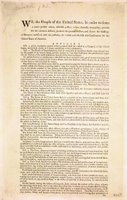Geoff Stone visits the CLS ACS
Professor Geoffrey Stone, of the University of Chicago, addressed ACS and students at Columbia Law School this afternoon. His topic was the Bush Administration's response to The New York Times story on National Security Administration surveillance. The Bush administration suggested that the Justice Department look into criminal actions against several parties involved in leaking the classified information in the story. Stone identified three types of parties implicated in the pursuit of this type of criminal action: first, government employees who leaked classified information (defined as any information that threatened national security); second, the journalists who obtained the classified information; and third, the publishers who disseminate that information.
Stone found a conflict between the treatment of the government employee, who can be prosecuted for leaking the information, and the publishers, who are protected under the First Amendment for printing it - unless the publication creates a clear and present danger. Stone then rationalized the conflict, first by pointing out that prosecution of state employees for this type of offense does not generally raise a full weighing of First Amendment issues. He then pointed to an overlooked element of hypotheticals in which the press can be prosecuted for publishing classified information. Such hypotheticals include publication of military ship departure dates, or of invasion plans, and are generally described as creating clear and present danger. However, Stone also proposed that such information does not contribute to public discourse, and that the press is only protected under the First Amendment for publishing any information that contributes to public debate. Thus, he says, the double standard - the application of disperate doctrine to the state employee and the press - disolves.
However, the journalist is left in a murky middle area. Stone pointed out that any way a journalist receives classified information is likely to be in itself a crime; bribery, solicitation of the leak (thus inciting a crime), or even mere passive receipt of illegally leaked information. Stone left the audience with the questions of where to draw the line between what would and wouldn't be an illegal way to obtain information, and also of who can be considered a journalist for the purposes of First Amendment protection. A lively conversation ensued after Stone's remarks, and the Columbia Law School ACS would like to thank Professor Stone for his thought-provoking and informative address.
Labels: Article II, Bill of Rights, CLS

